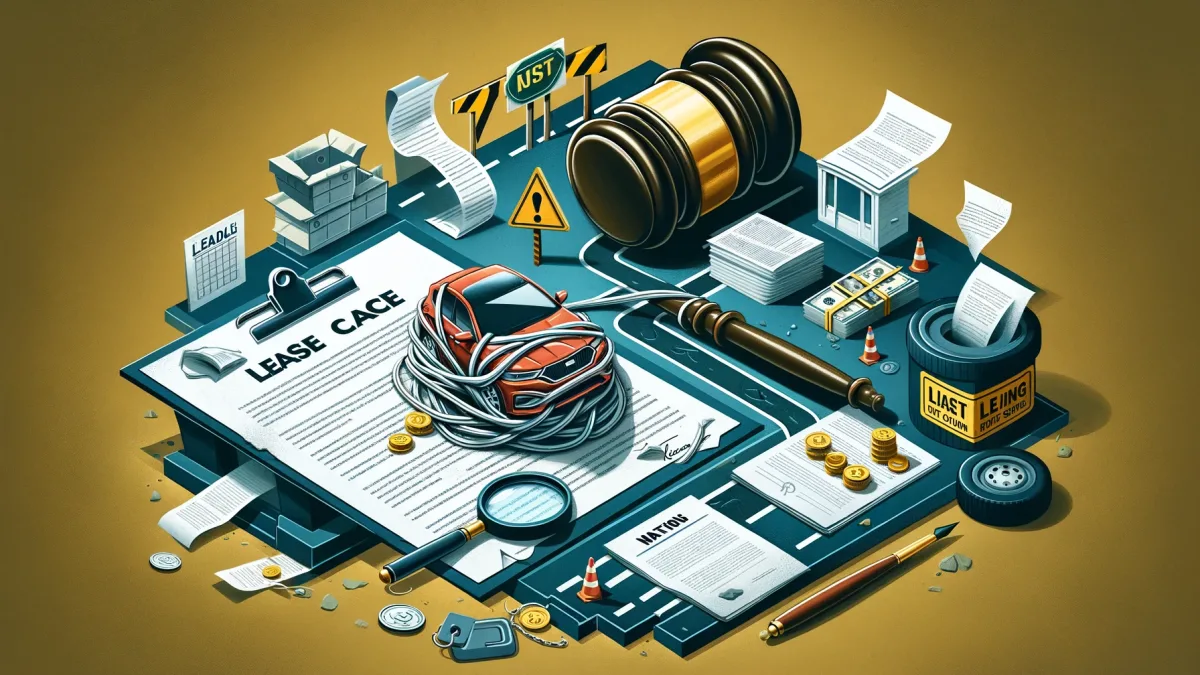In the current automotive market, leasing a car can appear as an attractive option for those looking to drive a newer vehicle without the hefty price tag of ownership. However, from a legal standpoint, there are several considerations that potential lessees should be aware of before signing on the dotted line. As a lawyer with experience in consumer rights and financial law, I’m here to provide an objective, yet informal, overview of the potential pitfalls associated with car leasing. Let’s dive into the 10 reasons why leasing a car might not be the best financial move for you.
1. Limited Mileage
Lease agreements typically come with mileage limits, usually ranging from 10,000 to 15,000 miles per year. Exceeding these limits can result in hefty penalties, costing you significantly more than anticipated. For those with a long commute or a love for road trips, these restrictions can be a major drawback.
2. Wear and Tear Charges
Returning a leased car in a condition that the dealer considers beyond “normal wear and tear” can lead to unexpected charges. The ambiguity of “normal wear and tear” often leads to disputes between lessees and lessors, potentially resulting in costly fees for repairs or replacements.
3. Higher Insurance Costs
Leased vehicles often require higher levels of insurance coverage, including gap insurance, which can increase your monthly expenses. This is because the leasing company wants to ensure their asset is fully protected, translating to higher premiums for the lessee.
4. Early Termination Fees
Life is unpredictable, and sometimes financial situations change, requiring you to terminate your lease early. Unfortunately, doing so can incur substantial penalties, making it a costly option if you’re unable to commit for the entire lease term.
5. No Ownership Equity
Unlike purchasing a car, you’re not building any equity in a leased vehicle. At the end of the lease term, you have to return the car with nothing to show for the payments you’ve made, unless you opt to buy the car at its residual value, which can be higher than the market value.
6. Customization Restrictions
If you enjoy personalizing your car, leasing might not be for you. Any modifications or customizations are typically prohibited under a lease agreement, or they must be reversible. At the end of the lease, the car must be returned in its original condition, limiting how much you can make it “yours.”
7. Perpetual Payments
Leasing a car can trap you in a cycle of perpetual car payments. Every few years, you might find yourself entering into a new lease agreement, ensuring that you’re always saddled with a monthly car payment.
8. Complex Contracts
Lease agreements can be complex and filled with jargon that can be difficult to understand. This complexity can lead to misunderstandings about your responsibilities and rights under the lease, potentially leading to legal disputes or unexpected costs.
9. Depreciation Irrelevance
One of the selling points of leasing is avoiding the depreciation hit that comes with buying a new car. However, the truth is that lease payments often factor in the vehicle’s depreciation, meaning you’re still paying for it, just indirectly.
10. Opportunity Costs
The money you spend on leasing a car could be invested elsewhere, potentially yielding returns that far outweigh the benefits of driving a newer model. This opportunity cost is an important consideration for anyone looking to make the most of their financial resources.
Conclusion
While leasing a car may seem like an appealing option for driving a newer vehicle with lower upfront costs, it’s important to consider the long-term implications and potential legal and financial pitfalls. From restrictions and fees to the lack of equity and perpetual payments, leasing is not without its drawbacks. As always, it’s crucial to read any lease agreement carefully, understand your rights and responsibilities, and consider consulting with a legal professional if you have any doubts. Remember, an informed decision is always the best decision, especially when it comes to financial commitments.









Leave a Reply